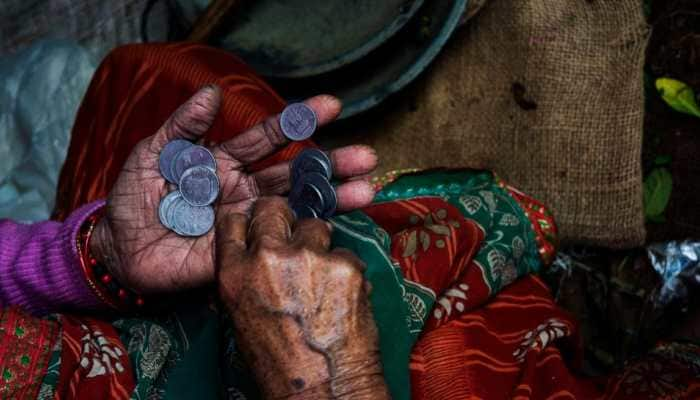Pakistan out: Caught Afghanistan, bowled India in Iran, courtesy Chabahar Port
Pakistan's reluctance to allow India to make use of its territory for trade with Afghanistan may have backfired completely with the first consignment of Indian wheat for Kabul reaching Chabahar Port in Iran.
- A trilateral trade agreement was signed between India, Afghanistan and Iran in 2016.
- Chabahar Port in Iran was developed with Indian help. India has extended a credit line of Rs 1,000 crore or USD 150 million to develop the project.
- The port is now being used by India to bifurcate Pakistan and open trade with Afghanistan.
Trending Photos
) File photo of PM Narendra Modi, Iran President Hassan Rouhani and Afghan President
File photo of PM Narendra Modi, Iran President Hassan Rouhani and Afghan President New Delhi: If international trade was a cricket match, India and Afghanistan together would have claimed a big wicket - Pakistan. The two countries earlier this week bifurcated land-trade route through Pakistan and officially began trade through the Chabahar Port in Iran. The distance may be longer but relations just a got a whole lot closer.
In many ways, a trade route through Pakistan into land-locked Afghanistan would have been the logical step considering the distance of just 990 kilometres between New Delhi and Kabul. The 1.1 million tonnes in 35,000 containers would take lesser time through the land route. Instead, the first of several consignments was dispatched through the sea route to Chabahar in Iran from where it will enter Afghanistan via a different land route - a total distance of 3,900 kilometres or more than thrice the all-land distance.
So why was Chabahar port chosen? In one word - Pakistan.

Pakistan borders Afghanistan to its south and east and has used its strategic location to have a controlling hand on Kabul in terms of trade. Traditionally, Pakistan has been Afghanistan's biggest supplier of wheat but because of its geo-political positioning, managed to dictate pricing. In 2014 for example, Pakistani wheat was Rs 500 more expensive per tonne than wheat from India. Both Afghanistan and India, quite naturally, wanted to trade in wheat but Pakistan refused to allow passage. In fact, Pakistan repeatedly refused to allow land passage to Afghanistan through its territory each time India asked for it in the last 17 years.
So what was the solution? In one word - Iran.
In 2003, India began exploring other options of expanding bilateral trade with Afghanistan - leaving Pakistan on the sidelines. Helping Iran develop the Chabahar Port emerged as a viable alternative even if it meant a longer route.
In it was the birth of a historical trilateral agreement between India, Iran and Afghanistan - signed in May of 2016 - to make use of Chabahar Port for trade and transit into Central Asia and Europe. "We want to link with the world. (The) agreement …can alter the course of history of the region,” PM Narendra Modi had said after signing the agreement with Afghan President Ashraf Ghani and Iranian President Hassan Rouhani.
While most experts agree that it was a cornerstone in international trade, many also agree in the same breath that it was a diplomatic masterstroke.
So what is next? Chabahar ahoy!

* Chabahar is located in a free-trade zone.
* India has extended a credit line of Rs 1,000 crore or USD 150 million to develop the project.
* Studies show that trade with Europe will bring down cost and time by 50 per cent for India.
* More importantly, it gives India a strategic advantage over Pakistan.
* The first shipment with 7500 tonnes of Indian wheat meant for Afghanistan has already reached Chabahar.
So what's in it for Iran? Security, greater economic activity and trade with stable partners.
Ever since the Iran-Iraq was in the early 1980s, Iran has been looking to reduce its dependence on ports in the Persian Gulf. Shifting eastwards has been widely seen as a logical step to ensure the security of trade routes and corridors. Chabahar, therefore, becomes vital for the country.
Partnering India - one of the biggest Asian economies - also is in the best interest of Iran. The port becomes a starting point for several other collaborations. Trade with Russia - a key partner - can also be enhanced. This assumes even more significance because of Iran's frosty relations with the United States - making it look towards big economies for increased trade.
And what's in it for Afghanistan? Freedom from Pakistani trade shackles.
Much like Iran, or even more perhaps, Afghanistan understands the need to expand trade with India. In the past, thorny India-Pakistan relations have hampered Kabul and New Delhi from discussing direct trade. Still, India received 46 per cent of Afghan total exports in 2016 - worth USD 220 million. This figure may now rise at a rapid pace. And Chabahar not just opens up the country to competitively priced Indian consignments and more exports to India but would also open other South and South-East Asian markets for Afghan products. Trade with Bangladesh in particular, feel economic experts, can expand exponentially.
And Pakistan? A loss-loss situation.
India-Afghanistan trade through Chabahar Port in Iran is a massive blow to Pakistani designs on a number of levels. The failure to revive Afghanistan-Pakistan Transit Trade Agreement (APTTA) so far has now come to haunt Islamabad. In the past, Pakistan has dictated terms to Afghanistan - compelling the latter to look elsewhere. The proverbial push came to shove when Kabul communicated via Pakistan's High Commission there that talks on reviving APTTA would only take place if New Delhi was made part of it. The country wanted India to be made part of the Trilateral Transit Trade Agreement between Pakistan, Afghanistan and Tajikistan.
Long opposed to any Indian involvement, The Hindu reported that Pakistan Army Chief Qamar Javed Bajwa then mulled the prospect of involving India.
It may have been just too late.
Indian officials at the SCO Afghanistan-Contact group meeting in Moscow reportedly told the Afghan delegation that it would not take up Pakistan's offer for talks.
And the snub may cost Pakistan dearly. Pakistan's exports to Afghanistan have come down from a record high of USD 2.4 billion in 2010-11 to USD 1.43bn in 2015-16. And it continues to be in freefall. "The dwindling trade relationship with Afghanistan shows the absence of rationality," read a recent report in the Dawn.
In such times, Chabahar Port not just further erodes Pakistan's influence over Kabul but also makes its Gwadar Port - developed with Chinese help - rather irrelevant.
Overall then, Chabahar Port opens up a world of possibilities for India, Afghanistan and Iran. It is mostly agreed that it is a massive boon for trade operations and doubles up as a diplomatic one-two-three punch to Pakistan. For Pakistan on the other hand though, it slams shut prospects of greater trade with its neighbours.
Stay informed on all the latest news, real-time breaking news updates, and follow all the important headlines in india news and world News on Zee News.
Live Tv







)
)
)
)
)
)
)
)
)
)
